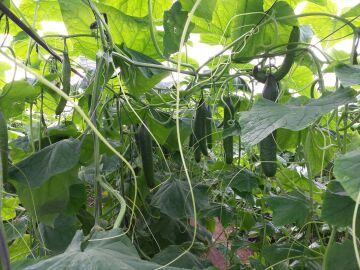
Norwegian health authorities have linked a salmonella outbreak to consumption of cucumbers from Spain. this bud would have affected at least 72 people throughout the country since last October, although this episode is “probably over” already.
For its part, the Spanish Agency for Food Safety and Nutrition (Aesan) has called for prudence because there is no confirmation of the Spanish origin of this outbreak. Thus, the Spanish authorities point out that the origin of the food that caused an outbreak of salmonella detected in Norway is not confirmed. According to Aesan, the information reported by Norway through the EU Rapid Alert System (Rasff) it is not conclusive or sufficiently verifiedso the outbreak could be due to another food.
On the other hand, the Norwegian Food Safety Authority (FHI) has assured that the link between the cases of “salmonella agona” detected in the country and cucumbers have been demonstrated in the investigations of its services and have indicated that there have been cases of the same responsible strain in the Netherlands and Sweden.
Likewise, they report that “no new cases of disease have been reported in recent weeks, which may indicate that the contaminated product is no longer on the market“.
No longer on the Norwegian market, the FHI authorities they have not been able to test the product “to detect the outbreak bacteria”according to the main adviser of the organization, Heidi Lange, on the website of the entity.
In total, 72 cases were detected and the FHI states that all of these people “came ill with salmonellosis during a short period, from late October to early December, with a peak in weeks 45 and 46.”
The institute has explained that a case-control study was carried out comparing what the infected had eaten with what a random selection of other people had eaten. “Almost 90% of those infected report having eaten cucumber in the week before becoming ill,” the FHI has indicated.
The outbreak investigation was carried out in collaboration with the local municipal chief medical officers, the Norwegian Food Safety Authority and the Veterinary Institute.
The FHI reports that “salmonella agona” is a rare salmonella serovariant, both in Norway and the rest of Europe, that had previously been detected in the Scandinavian country “but only as isolated cases and often related to infections abroad”.
Source: Lasexta
Mario Twitchell is an accomplished author and journalist, known for his insightful and thought-provoking writing on a wide range of topics including general and opinion. He currently works as a writer at 247 news agency, where he has established himself as a respected voice in the industry.











